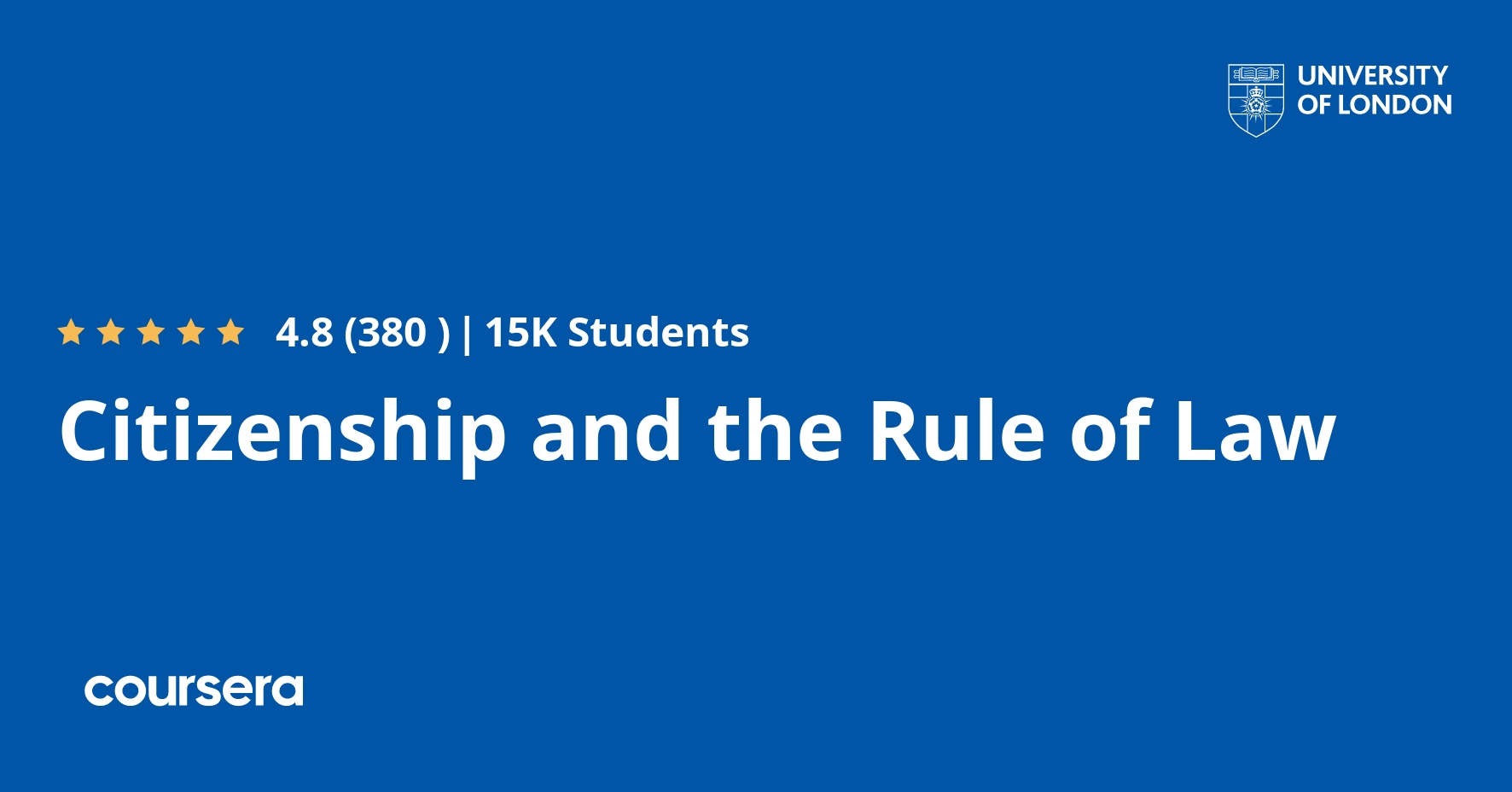Description
“Be you so high, the law is above you.” This principle, part of the Rule of Law, has come to represent the powerful idea that even politicians and monarchs are bound by the law. However in an age of powerful corporations, international cyber-crime and popular support for authoritarian leaders, the Rule of Law is under threat worldwide.
This course, run by the Bingham Centre of the British Institute of International and Comparative Law, will provide an introduction to headline issues around the Rule of Law. Each week we will tackle aspects of the Rule of Law and discuss how they are impacted by current events. The course will use video lectures, recommended reading, discussion questions and activities to enable you to develop your own perspective on the Rule of Law. Though this course sits at the intersection of law and politics, participants do not require any formal educational background in either of these subjects to join. The course will take place over 6 weeks with approximately 3 hours of content each week.
What you will learn
A Potted History of the Rule of Law
Welcome to the first week of the course. Week 1 is an overview of the headline debates concerning the Rule of Law and a discussion of how it applies in practice today. You will be taken through a historical account of the development of the principle over time from Aristotle’s first statement of the Rule of Law to the modern work of the Bingham Centre. This teaching session will also serve as an introduction to debates about the requirements of the Rule of Law, i.e. whether it passes judgment on if particular decisions are “good” or “bad” and whether human rights are part of the Rule of Law.
Judges: Independence, Tenure and Appointment
Welcome to the second week of the course. Week 2 will focus on processes for the selection and appointment of judges, the importance of public confidence in the judiciary and the role that judges play in securing the Rule of Law.
What does it mean to be equal before the law?
Welcome to the third week of the course. Week 3 will establish that all must be treated equally before the law. The session will discuss contentious situations in which treating people equally requires that they be treated differently in order to give effect to justice, such as the limited range of sanctions available to criminals convicted as children.
Access to Justice
Welcome to the fourth week of the course. Week 4 looks at a number of other barriers that individuals face in enforcing their legal rights. One of the concepts explored will be ‘legal capability’. This is defined as the knowledge, skills and confidence required to resolve legal problems in life. Students will be presented with a range of initiatives undertaken by civil society to improve legal capability and will produce their own ideas about improving access to justice across the world.




